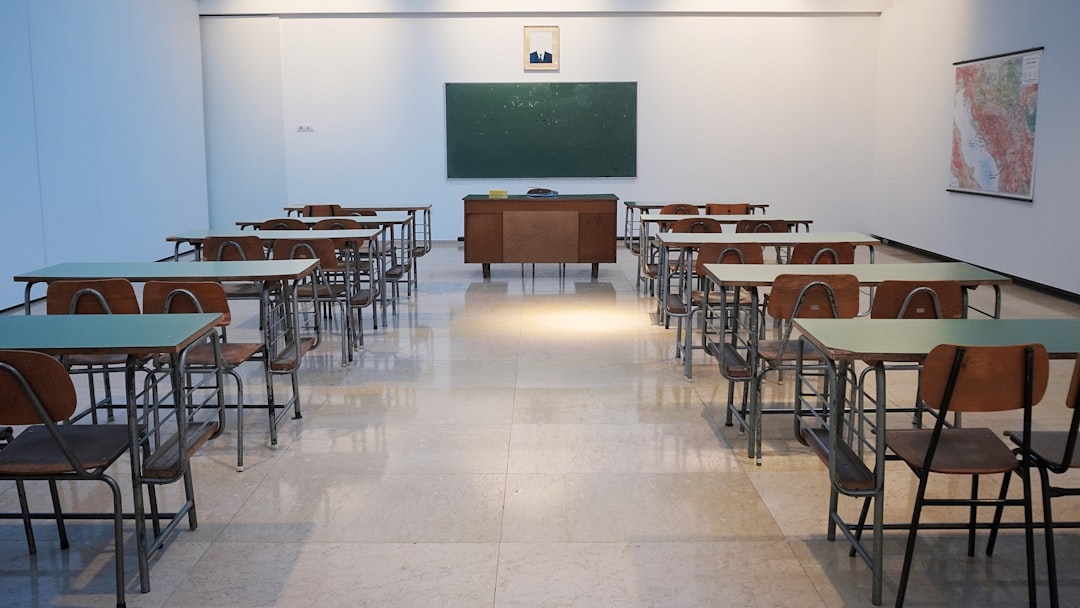Title IX lawyers in South Carolina are vital for navigating sexual misconduct or discrimination cases. They guide clients through evidence gathering, hearing preparation, and strategic presentation to ensure fairness and protect rights. After hearings, these experts assist with appeals, ensuring justice under Title IX regulations. Using organized evidence, visual aids, and charts, they strengthen case communication and outcomes.
In South Carolina, Title IX lawyers play a pivotal role in ensuring fairness and justice in cases involving sexual misconduct. This comprehensive guide explores the intricate legal process, highlighting the expertise of Title IX attorneys in evidence gathering and hearing procedures. From understanding the South Carolina-specific legal framework to navigating post-hearing steps, this article equips readers with knowledge about the crucial strategies employed by these specialists. Discover how competent legal representation can significantly impact outcomes for all parties involved.
Understanding Title IX Legal Process in South Carolina
In South Carolina, navigating a Title IX case requires understanding a specific legal process designed to ensure fairness and protect the rights of all parties involved. Title IX lawyers play a crucial role here, guiding individuals through the intricate steps that follow an allegation of sexual misconduct or discrimination. The initial phase involves evidence gathering, where title ix lawyers meticulously collect and preserve relevant documentation, witness statements, and any available physical evidence. This process is essential to building a strong case and preparing for potential hearings.
Hearings under Title IX are typically conducted by an impartial third party, often referred to as a hearing officer or administrator. Both the complainant and respondent have the right to present their sides of the story, cross-examine witnesses, and offer supporting evidence. Title IX lawyers in South Carolina assist clients in preparing for these hearings, ensuring they understand their rights, know what questions to ask, and can effectively communicate their narrative. The outcome of these hearings can significantly impact an individual’s academic or employment future, making professional legal guidance indispensable.
Role of Title IX Lawyers in Evidence Gathering
Title IX lawyers play a pivotal role in evidence gathering processes for cases involving sexual misconduct or discrimination in South Carolina. These legal experts are well-versed in the intricacies of Title IX regulations and have extensive experience navigating educational institutions’ disciplinary procedures. They guide clients through every step, ensuring all relevant information is accurately collected and presented.
By employing strategic techniques, title IX lawyers help identify potential evidence sources, including witness statements, documents, emails, and institutional policies. Their expertise enables them to question witnesses effectively, uncover hidden facts, and challenge any procedural irregularities that may compromise the case. This meticulous approach maximizes the chances of a successful outcome during hearings or trials, safeguarding the rights of individuals seeking justice under Title IX in South Carolina.
The Importance of Hearings in Title IX Cases
In Title IX cases, hearings play a pivotal role in the legal process. These proceedings provide a structured platform for both sides to present their arguments and evidence, ensuring fairness and due process. Title IX lawyers in South Carolina are experts in navigating these hearings, where the future of an individual’s academic or employment career can be determined.
The hearings allow for a thorough examination of facts, witness testimonies, and documents, enabling the decision-maker to understand the nuances of each case. Well-prepared and experienced title ix lawyers guide their clients through this process, ensuring their rights are protected and all relevant information is presented effectively. This strategic approach can significantly impact the outcome, potentially leading to resolutions that uphold the rights of the accused or the victim, as outlined in the South Carolina laws pertaining to Title IX.
Strategies for Effective Evidence Presentation
When presenting evidence in Title IX cases, especially in the state of South Carolina, it’s crucial to employ strategies that ensure clarity and persuasiveness. Title IX lawyers often recommend organizing evidence chronologically, beginning with initial reports and communications related to the incident, followed by any relevant witness statements or security footage. This linear approach helps judges and juries understand the sequence of events, making it easier to identify key elements of the case.
Visual aids can significantly enhance evidence presentation. Maps, diagrams, or photographs can illustrate important locations and details related to the claim. For instance, in sexual harassment or assault cases, showing the layout of a school or workplace can help demonstrate routes taken and potential witnesses. Additionally, using charts or graphs to summarize data, such as disciplinary records or patterns of behavior, allows for more efficient communication of complex information, ensuring that both legal teams and the court fully grasp the evidence presented by Title IX lawyers in South Carolina.
Navigating Post-Hearing Procedures in South Carolina
After a Title IX hearing in South Carolina, the next steps are crucial for both parties involved. Students and institutions must understand that post-hearing procedures play a significant role in resolving disputes related to sexual misconduct or harassment. The process involves careful navigation of legal protocols to ensure a fair outcome.
Title IX lawyers in South Carolina assist clients by guiding them through these intricate stages. They help gather additional evidence, prepare written submissions, and represent their clients during any appeals or further hearings. Their expertise ensures that rights are protected and all regulations are adhered to, allowing for a just resolution and promoting an environment free from discrimination and harassment.




